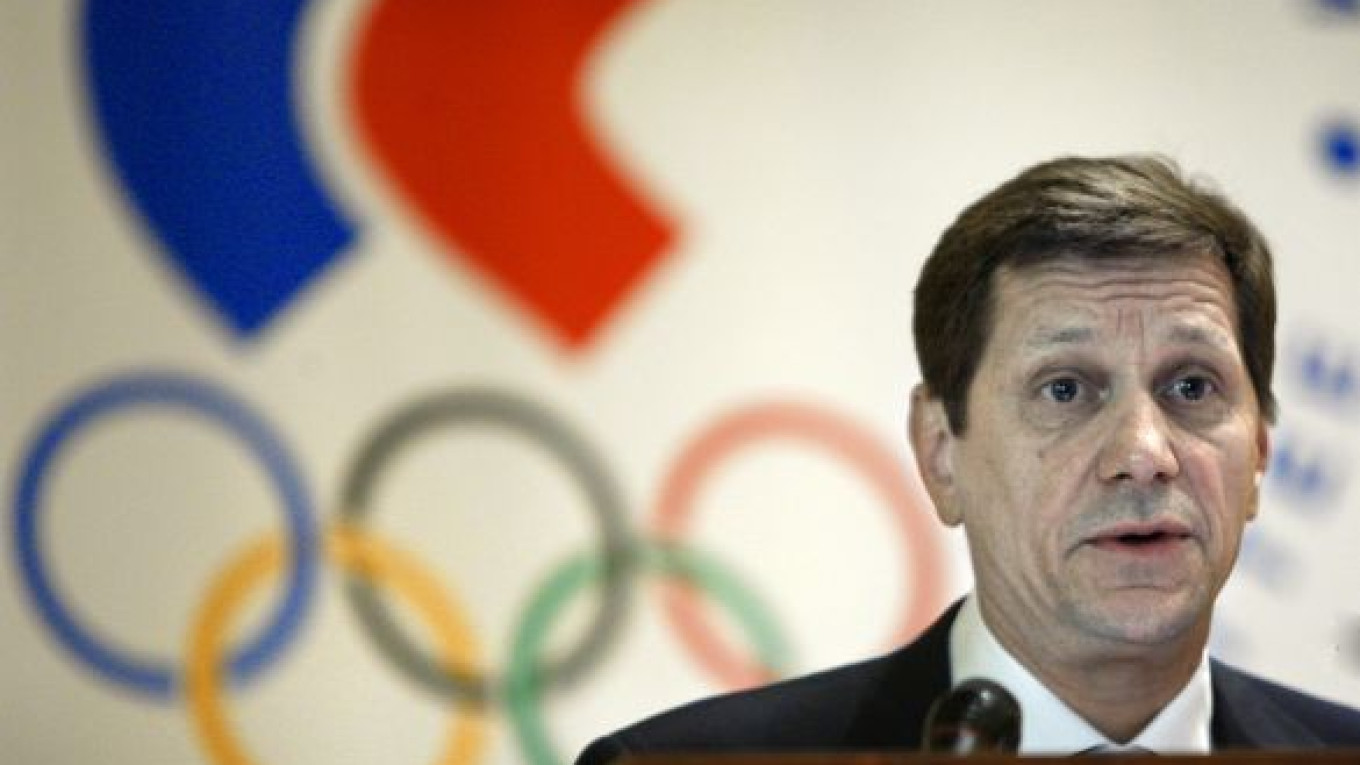COLORADO SPRINGS, Colorado — When the Russians flamed out at the Vancouver Olympics earlier this year, they knew where to go.
When leaders of Brazil's Olympic Committee decided that they needed to ramp up their program for a good showing at home in 2016, they looked to the same place.
And when leaders in Saudi Arabia wanted a new commitment to winning more medals — well, that country also called on the Olympic fixer, Steve Roush.
He's the same person who spent the better part of his career trying to make the U.S. Olympic team the best in the world, at the expense of every other nation, including his new clients.
"Yeah, I'm a little surprised," Roush said. "But at the same time, I thought it was something that could be very useful for a variety of clients, all shapes and sizes, with varying degrees of talent levels."
Roush, who rose to become chief of sport performance at the U.S. Olympic Committee for six years, is building a new career based on one of the strange ironies of Olympic life. Despite the billions spent on staging the world's largest sports festival, the thousands of athletes who compete and millions of fans who watch, the majority of the countries that send competitors to the games don't have anything close to a state-of-the-art, 21st-century training program in place.
Roush helped build such a machine in the United States, which has won more medals — winter and summer — than any country since the former Soviet Union and its once-amazing Olympic program stopped competing as a unified team in 1996.
Oddly, it was Russia that came calling most recently. The Russians were reeling from an awful Olympics, during which they won only 15 medals — 11th on the medals table for a country that used to dominate the games. The result led to the resignations of four key executives in the country's Olympic program.
On Thursday, the Russian Olympic Committee elected Deputy Prime Minister Alexander Zhukov as its new chairman.
Zhukov has received a report that Roush turned in earlier this month — an unflinching look at the state of Russia's Winter Olympic system. Whether Roush stays on as an adviser will be determined soon.
"They still have some of the remnants of the byproduct of the Soviet program, but each year, you lose a little bit more," Roush said. "A coach retires and athletes retire, and before you know it, you're going to be without a lot of those byproducts."
As the recent spate of retirements shows, Russia isn't afraid of getting rid of people who aren't serving the movement well. Roush realizes this and says he took on the job to be as open and honest as he can with the government, not to tell them what they want to hear.
"Ultimately, my credibility is very much on the line," he said. "To go there and tell them, 'Hey, you don't have a problem, life's good, just throw a little more money at it,' I don't think that's why they hired me. They could've done that a lot cheaper and easier than bringing me on board."
Roush brought his expertise to a company called TSE Consulting, which added the sports performance piece to a group that focuses largely on public relations and communications for cities trying to put on large sporting events.
Hiring him is not cheap. Most countries pay at least six figures for Roush's services, and the price fluctuates depending on the size of the client, the kind of work they're asking for and the time frame.
In Saudi Arabia, he is trying to help a country that has won a grand total of nine Olympic medals find more opportunities in track and equestrian events.
Roush helps the countries focus on their strengths and identify sports where lots of medals are available. He's doing that for Brazil, which is strong in sports such as gymnastics and soccer but wants more for when Rio de Janeiro hosts in 2016.
Roush's decision to work for Russia — one of the United States' key rivals — has raised some eyebrows among those in the U.S. Olympic community.
"It's a little funky because, I think, you hate to think that someone who's done so much for sport in the United States is working with other countries to help elevate their program," USA Gymnastics president Steve Penny said. "But when you look at how much we pull from other countries, it's not all that unusual."
The U.S. Olympic Committee itself has no problems with Roush moving into a field that could put him in direct competition with the American team.
"Our approach to sport performance has been very effective, and Steve certainly had a role in our teams' successes," USOC CEO Scott Blackmun said. "He understands the complexities and will make a meaningful contribution to the programs he supports."
A Message from The Moscow Times:
Dear readers,
We are facing unprecedented challenges. Russia's Prosecutor General's Office has designated The Moscow Times as an "undesirable" organization, criminalizing our work and putting our staff at risk of prosecution. This follows our earlier unjust labeling as a "foreign agent."
These actions are direct attempts to silence independent journalism in Russia. The authorities claim our work "discredits the decisions of the Russian leadership." We see things differently: we strive to provide accurate, unbiased reporting on Russia.
We, the journalists of The Moscow Times, refuse to be silenced. But to continue our work, we need your help.
Your support, no matter how small, makes a world of difference. If you can, please support us monthly starting from just $2. It's quick to set up, and every contribution makes a significant impact.
By supporting The Moscow Times, you're defending open, independent journalism in the face of repression. Thank you for standing with us.
Remind me later.


